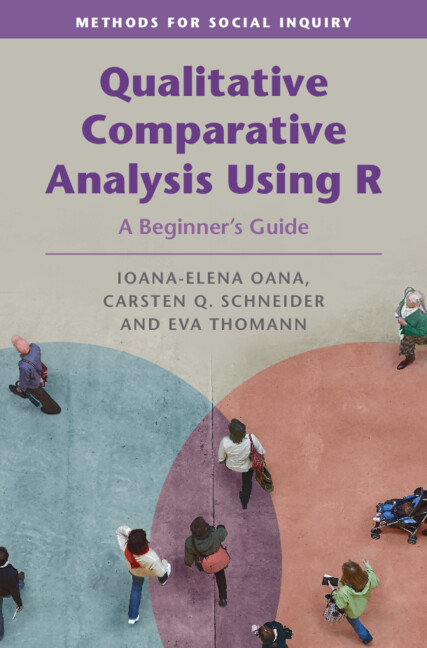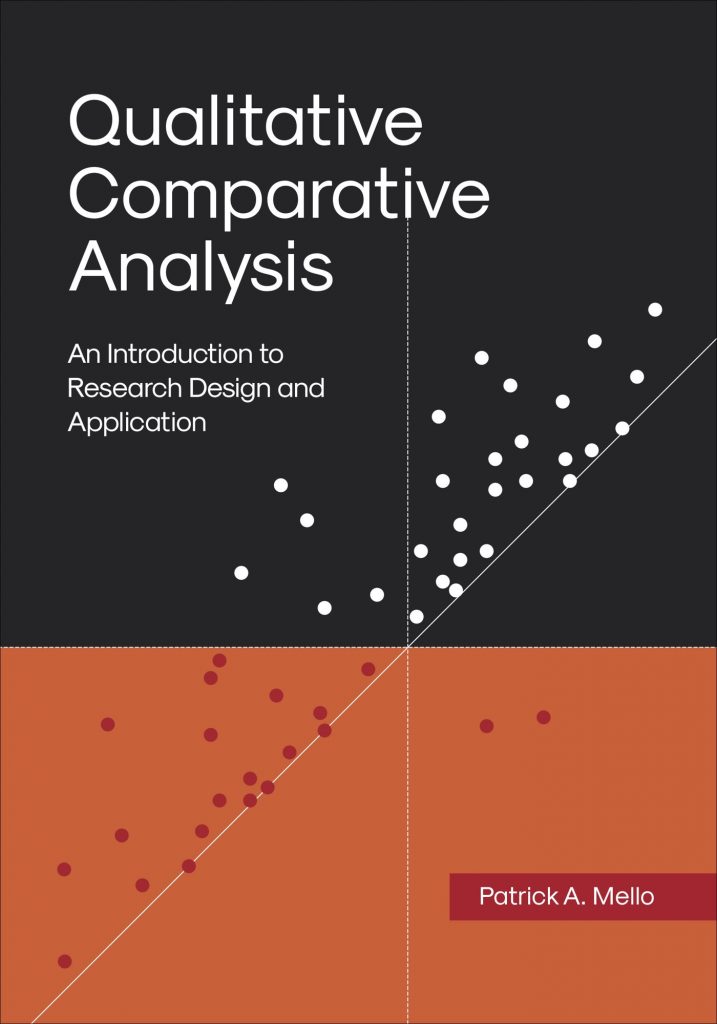COMPASSS now has a YouTube page. Thanks to Sophia Pagliarin for spearheading this initiative! There are just two videos available now but we’d like to highlight talks by members of the COMPASSS community on QCA and related configurational-comparative methods. If you have a talk that you’d like us to host, please contact Claude.
All posts by cjr
Announcing the QCA Conference of the Americas (AQCA)
We are pleased to announce the launch of the annual QCA Conference of the Americas. Organized by Claude Rubinson (U Houston-Downtown), Peer Fiss (U Southern California) and Gary Goertz (Notre Dame), the inaugural meeting will be held April 6-8, 2022 at the University of Houston-Downtown. Charles Ragin (UC Irvine) and James Mahoney (Northwestern) will deliver the keynote addresses.
Responding to the growing interest in understanding causally complex phenomena in a configurational and comparative manner, AQCA will provide a venue for the broad, cross-disciplinary community of QCA empirical researchers and methodologists to gather together to present and receive feedback on current research projects, share theoretical and methodological developments, and discuss new directions in configurational-comparative research practices. AQCA offers a supportive environment for the diverse QCA community to meet, engage in dialogue, network, learn, and collectively move forward on advancing the configurational-comparative perspective.
AQCA will be a broad-tent, inclusive, and diverse venue that is open to everyone interested in learning about, using, and advancing the configurational-comparative perspective. Whatever your field or topic, if you use QCA and/or other configurational-comparative methods or if you are considering using them, then AQCA is for you. Whether your work is empirical, methodological, or theoretical; whether you are a seasoned practitioner or have just discovered the configurational-comparative approach, we hope that you will join us for three days of lively discussions, debates, community building, and learning.
We hope that you will join us in April. For more details and to review our call for abstracts (due date: January 31, 2022), please visit the AQCA website at https://compasss.org/aqca/.
New Book: Qualitative Comparative Analysis: An Introduction to Research Design and Application
Patrick A. Mello (Technical University of Munich) has published Qualitative Comparative Analysis: An Introduction to Research Design and Application (Georgetown University Press, 2021).
Qualitative Comparative Analysis: An Introduction to Research Design and Application is a comprehensive guide to QCA. As QCA becomes increasingly popular across the social sciences, this textbook teaches students, scholars, and self-learners the fundamentals of the method, research design, interpretation of results, and how to communicate findings.
Following an ideal typical research cycle, the book’s ten chapters cover the methodological basis and analytical routine of QCA, as well as matters of research design, causation and causal complexity, QCA variants, and the method’s reception in the social sciences. A comprehensive glossary helps to clarify the meaning of frequently used terms. The book is complemented by an accessible online R manual to help new users to practice QCA’s analytical steps on sample data and then implement with their own findings. This hands-on textbook is an essential resource for students and researchers looking for a complete and up-to-date introduction to QCA.
New Book: Qualitative Comparative Analysis with R: A Beginner’s Guide
Ioana-Elena Oana (European University Institute), Carsten Q. Schneider (Central European University), and Eva Thomann (Universität Konstanz) have released Qualitative Comparative Analysis with R: A Beginner’s Guide (Cambridge University Press 2021).
A comprehensive introduction and teaching resource for state-of-the-art Qualitative Comparative Analysis (QCA) using R software. This guide facilitates the efficient teaching, independent learning, and use of QCA with the best available software, reducing the time and effort required when encountering not just the logic of a new method, but also new software. With its applied and practical focus, the book offers a genuinely simple and intuitive resource for implementing the most complete protocol of QCA. To make the lives of students, teachers, researchers, and practitioners as easy as possible, the book includes learning goals, core points, empirical examples, and tips for good practices. The freely available online material provides a rich body of additional resources to aid users in their learning process. Beyond performing core analyses with the R package QCA, the book also facilitates a close integration with the R package SetMethods allowing for a host of additional protocols for building a more solid and well-rounded QCA.

New Working Paper
“Analyzing Relations of Necessity in Survey Research: Incorporating Notions of Fuzzy-Set Qualitative Comparative Analysis and Bootstrap” by Daisuke Mori of Kumamoto University.
Correlation coefficients often used in quantitative research, such as survey research, cannot adequately measure certain key aspects within the relation of necessity. In this paper, I focus on Qualitative Comparative Analysis (QCA), enabling the analysis of set relations or relations of necessity and sufficiency, and try to incorporate it into the analysis of survey research. I present the parameters of fit in a fuzzy-set QCA to measure such a relation. I also show the methods used to conduct statistical inferences to understand the properties of a population based on a random sample from that population. For example, I analyzed the survey data on the purpose of tort damages in the case of a defective car accident in Japan. In this survey, respondents were asked about the extent to which they considered five factors in deciding the amount of damages: compensation for monetary loss, punishment, compensation for mental suffering, deterrence, and satisfying the feeling of retribution. I found that compensation for monetary loss is not correlated with punishment, deterrence, and satisfying the feeling of retribution. However, compensation for monetary loss is a necessary condition. The analysis of relations of necessity can highlight relations that have not been detected by conventional statistical analysis based on correlations.
Special Issue of Quality & Quantity on QCA and Causation
A special issue of Quality & Quantity focusing on “Causation, inferences, and solution types in configurational comparative methods,” co-edited by Tim Haesebrouck (Ghent University) and Eva Thomann (University of Konstanz), is now available on-line. An introduction to the issue is provided below, along with the direct links to the articles, which are available in the COMPASSS bibliography.
Continue reading Special Issue of Quality & Quantity on QCA and Causation5th International QCA Paper Development Workshop: CfA
The 5th International QCA Paper Development Workshop will be a hybrid event held in Zurich and online, December 13 (and possibly the 14 as well). The call for abstracts is now available.
The PDW offers researchers embarking on QCA projects a venue to meet QCA experts, get feedback on their on-going research, and learn about the latest methodological developments in QCA. For more information, see the International QCA Workshops website.
CNA Fellowship at the University of Bergen
The Department of Philosophy at the University of Bergen is inviting
applications for a PhD fellowship (3-4 years; 100%) connected to the interdisciplinary
FRIPRO project “Advancing Causal Modeling with Coincidence Analysis”
(AdCNA) led by Prof. Michael Baumgartner. For details see:
CfP: QCA in Information Systems
Information Systems Journal has issued a call for paper for a special issue focused on QCA in IS. The deadline of submissions is March 31, 2022.
https://onlinelibrary.wiley.com/pb-assets/assets/13652575/ISJ%20SI%20TQQD-FINAL%20(002).pdf
FRIPRO Award for CNA
Michael Baumgartner and his colleagues at the University of Bergen have been awarded a 12M (NOK) grant from the Norwegian Research Council to fund the further development of coincidence analysis. Congratulations to the entire CNA team!

